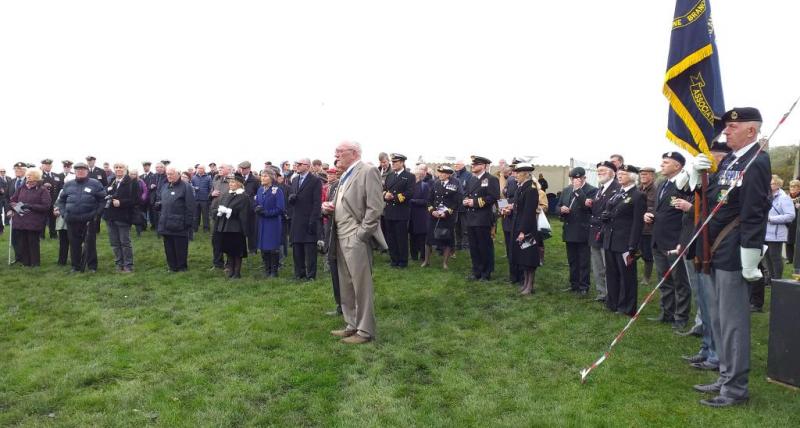
This year’s Trafalgar Day ‘Toast the Admiral’ event will take place on Thursday 21 October at Collingwood Monument, Tynemouth.
This is the 12th year that North Tyneside Council has hosted the event for members of the public, invited dignitaries, and honoured guests.
It will be the first time since 2019 that guests are able to raise a glass in person, after the pandemic forced the event online in 2020.
Deputy Chair of North Tyneside Council, Councillor Pat Oliver, will say a few words to introduce the event and welcome the guests.
She said: “Every year the council hosts this special event to commemorate Trafalgar Day and raise awareness of the achievements of our very own Admiral Collingwood.
“We were able to keep the tradition alive during the pandemic by moving the event online, but nothing compares to bringing people together at this wonderful location, looking out to sea, and we look forward to normal service resuming on October 21.
“Our pride in our maritime history is matched by our pride in our Royal Navy and it is our great pleasure to welcome Captain Catherine Jordan RN, Commanding Officer for HMS Collingwood, to deliver this year’s address.”
The event gets underway at 11.40am with the toast taking place at 12pm.
The toast happens at 12pm as this was the time at which the first shot was fired in the Battle of Trafalgar on 21 October 1805.
Schedule for the event:
- 11.40am – Gathering of invited guests and the general public
- 11:50am - Welcome by Deputy Chair of North Tyneside Council, Cllr Pat Oliver / Raising of the Blue Ensign
- 11.55am – Oration delivered by Capt Catherine Jordan RN, Captain Maritime Warfare School and Commanding Officer HMS COLLINGWOOD
- 12pm – Toast to Admiral Lord Collingwood.
NB: Priors Haven Car Park will be closed and used for invited guests only.
Who was Vice-Admiral Lord Collingwood?
Born in Newcastle on 26 September 1748, Collingwood’s naval career through the American War of Independence and the French Revolutionary and Napoleonic wars was an outstanding example of duty and courage.
Admiral Collingwood was famously second in command to Admiral Nelson at the battle of Trafalgar. His ship, Royal Sovereign was the first to fire upon the combined enemy fleet of French and Spanish ships and he was the most senior officer left standing when the battle had been won. Taking command of the British fleet, his skill as a seaman and commander ensured that no British ships were lost in the fierce storm that followed the action.
The respect that Collingwood earned was not confined to the British Navy, after Trafalgar he was able to negotiate with the Spanish at Cadiz to ensure that the wounded of all nationalities were cared for.
Admiral Collingwood was a highly-skilled commander who saw action in the battle of the ‘Glorious’ first of June under Admiral Howe, the battle of Cape St Vincent under Admiral Sir John Jervis and, after Trafalgar, he took over the Mediterranean command from the fallen Nelson, only relinquishing when he was near death, five years later in 1810. Post Trafalgar he was instrumental in ensuring that the complexity of the Mediterranean command was handled with the various skills of a viceroy, a politician, a diplomat and of course a naval commander.
